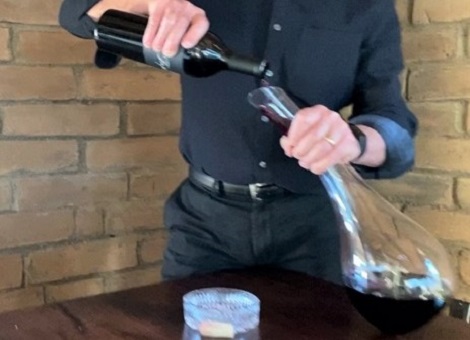Recently, I was busy making dinner and rushed to my wine cooler to get a bottle of Cabernet that I thought would pair well with the beef I had cooked. When we were all ready, I opened the bottle at the table. BIG Mistake. The wine was too cold, and it tasted tight, with notes of rubbing alcohol. It should have been decanted!
Decanting allows volatile gases that are trapped in the bottle to evaporate, and there is a change in phenolics facilitated by oxygen Both of these processes will give you access to the aromatic compounds that express the full complexity of the wine, therefore making it more enjoyable.
It is always hard to say how long the wine needs to be decanted, because it depends on the wine. As a rule of thumb plan for at least an hour for a wine that is within 3-5 years since vintage. For older wines, I prefer about 30 minutes. Taste and test, get to know the wine, and maybe you might decide to go the full 2–3 hours.
While the wine waits in the decanter the temperature will increase from the 55°F that it was stored at to the ideal for a full bodied Cabernet: 60–65°F.
At this point, you will perceive more aromatic compounds, and this reduces your perception of the tannins, making the wine more expressive and integrated.
As to what happened to the wine I opened for dinner? I served it in the glass, while we had the salad first alongside a light white wine, and by the second course, it was better. By the end of the meal, after a lot of swirling and conversation, it was expressing itself with nice aromatics, but had I decanted it, it would have been even better.
Back to Recent Updates
